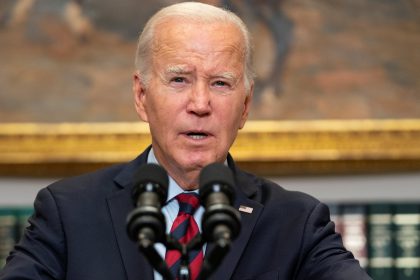Bipartisan Effort to Expand Employee Retention Tax Credit Gains Coalition Endorsement

WASHINGTON — A bipartisan effort to expand the employee retention tax credit has gained a significant endorsement from a coalition representing 130 small businesses and key industry organizations.
The bill, entitled the “Jumpstarting Our 5 Businesses’ Success Credit Act”, or JOBS Credit Act of 2020, aims to incentivize businesses to retain employees in active or furloughed status so they continue to receive a paycheck and other benefits.
Rep. Stephanie Murphy, D-Fla., is spearheading the legislation to retain the tax credit enacted by the United States’ first economic stimulus bill, the Coronavirus Aid, Relief and Economic Security Act, or CARES Act.
Joining Murphy in introducing the bill were Reps. John Katko, R-N.Y., Suzan DelBene, D-Wash., Brian Fitzpatrick, R-Pa., and Chris Pappas, D-N.H.
“While we are encouraged that the country is in the early phases of reopening the economy, demand for products and services may not rebound for years,” the coalition’s letter to congressional leaders said. “Therefore, an expansion of the Employee Retention Tax Credit is warranted so that companies can continue to retain employees and pay their healthcare benefits until more robust consumer spending returns.”
If enacted, the bill increases the credit to 80% from 50%, and increases the wage base to $15,000 per quarter for up to three quarters from $10,000 per year. Additionally, the JOBS Credit Act would also relax the qualifying rules for “revenue decline,” include health benefits in the definition of “qualified wages” and allow businesses that receive a “Paycheck Protection Program” loan to qualify for the credit.
The JOBS Credit Act was already a part of the already House-passed Health and Economic Recovery Omnibus Emergency Solutions Act, or HEROES Act. While the legislation intends to make up workers’ lost income from pandemic-related unemployment or furloughs and hinder further spread of coronavirus, it comes with a $3.4 trillion price tag.
“The backing of this diverse coalition shows the broad, bipartisan support that exists for ERTC expansion,” Murphy said. “Expanding this pro-worker, pro-business provision is one of the most important steps Congress can take to help Americans during this pandemic, and I will keep working across party lines to make it happen.”
The CARES Act is estimated to cost around $2.4 trillion over the next decade. Because of that bill, individuals with unemployment insurance gained an additional $600 in weekly payments and the Paycheck Protection Program lent up to $10 million to firms with fewer than 500 employees.
Loans from this program will be converted into grants if the businesses used the funds to maintain workers’ salaries. The CARES Act also allocated $150 billion for state and local governments and a $46 billion allotment for the crippled airline industry.
Much of the bill’s intent is geared towards making it easier for citizens to stay home. Around one-third of spending from the HEROES Act would also go directly to state and local governments while the rest would be used to support safety net programs like unemployment insurance.
“Democrats and Republicans in Congress, working with the Trump administration, have already managed to put politics aside and pass four bills to mitigate the health and economic effects of COVID-19,” Murphy said. “Congress can once again act in this ‘country-first’ spirit by expanding this bipartisan initiative to reduce layoffs, protect workers’ health insurance benefits, and help ensure a quick and robust economic recovery.”
























